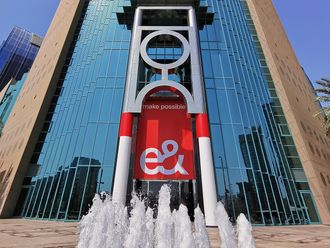Cairo: If history is any guide, Saudi Arabian stocks will benefit from being included in MSCI Inc’s emerging-market index in the months before the promotion, not after.
Saudi equity investors can expect returns of about 20 per cent in each of the years leading up to the upgrade and in the year of the event, and then a decline of 12 per cent in the following 12 months, according to data collected by EFG-Hermes Holding. The investment bank studied the fortunes of markets that gained emerging status at MSCI from 1993 to 2014, including the United Arab Emirates and Qatar. While foreign investor inflows will increase, that may not translate to higher liquidity.
Investors tend to pile into markets that they think will get the promotion, before the actual decision, attracted by policy changes such as allowing foreign ownership of previously off-limit companies, the adoption of settlement cycles that meet international standards and revamped disclosure rules. Those enhancements don’t mean the job is done for upgraded exchanges — the bourses need to continue to evolve to retain their allure, according to MSCI.
“The effort required by markets to get into MSCI Emerging Markets has to be consistently maintained,” Robert Ansari, the index provider’s executive director for the Middle East, said this week at a conference in Abu Dhabi. Once admitted, they’re “fighting for the same slice of capital” as China, Russia and India. “All of a sudden, you are being looked at by big Swiss pension funds. So, actually, classification is when the work starts, not when the work ends.”
Reforms checklist
As they look forward to next month’s MSCI annual market classification review, Saudi officials will have ticked off most of the steps required by the index provider, which is tracked by $1.5 trillion (Dh5.5 trillion) of emerging-market funds. These include allowing direct foreign ownership of local shares, extending the settlement cycle and becoming the first Arab market to allow short-selling. The kingdom has spent two years reforming its stock market to attract foreign investors after the slump in oil, its main revenue generator, slowed economic growth.
“Given the size of the existing market, we expect Saudi’s eventual upgrade to be a milestone event for regional capital markets,” said Salah Shamma, who helps manage an $85 million Middle East and North Africa fund at Franklin Templeton Invest ME Ltd in Dubai. Saudi and UAE shares make up 29 per cent and 26 per cent of his holdings, respectively.
The Saudi market could account for 5 per cent of the MSCI developing markets index and draw as much as $50 billion of inflows, if the country’s plan to take state-owned Saudi Arabian Oil Co public succeeds, Shamma said.
The performance of stock markets in the UAE and Qatar since their MSCI upgrade “has been sluggish, reflecting the significant drop in oil prices, which has negatively affected the region’s growth outlook and overall business sentiment,” Shamma said.
The EM factor
Even after achieving emerging status at MSCI, Qatari and UAE markets have found it hard to attract investors as tumbling oil prices forced the delay or cancellation of billions of dollars of projects. Benchmark equity indexes in Dubai, Qatar and Saudi Arabia are among the world’s worst performers in a year when other emerging markets have got off to their best start since 2009.
This is where the UAE and Qatari equities stand three years after they began trading as emerging markets: “An upgrade can happen; we have seen it happen in Dubai and in Qatar,” said Samer Abu Aker, chief operations officer and chief financial officer at Jeddah, Saudi Arabia-based Sedco Capital. “It has created a different investor base. But there is still a lot of work to be done.”











